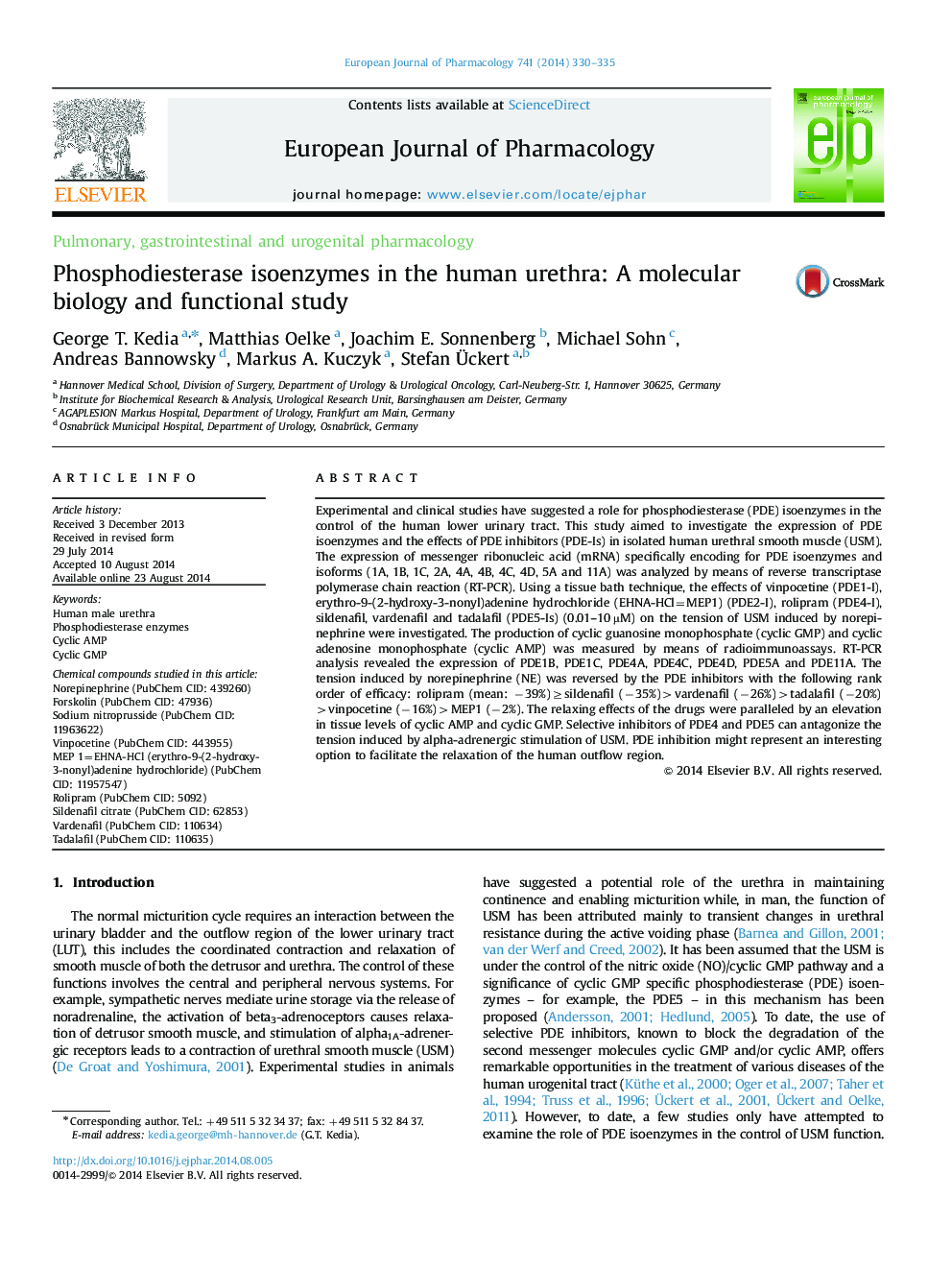| Article ID | Journal | Published Year | Pages | File Type |
|---|---|---|---|---|
| 5827672 | European Journal of Pharmacology | 2014 | 6 Pages |
Experimental and clinical studies have suggested a role for phosphodiesterase (PDE) isoenzymes in the control of the human lower urinary tract. This study aimed to investigate the expression of PDE isoenzymes and the effects of PDE inhibitors (PDE-Is) in isolated human urethral smooth muscle (USM). The expression of messenger ribonucleic acid (mRNA) specifically encoding for PDE isoenzymes and isoforms (1A, 1B, 1C, 2A, 4A, 4B, 4C, 4D, 5A and 11A) was analyzed by means of reverse transcriptase polymerase chain reaction (RT-PCR). Using a tissue bath technique, the effects of vinpocetine (PDE1-I), erythro-9-(2-hydroxy-3-nonyl)adenine hydrochloride (EHNA-HCl=MEP1) (PDE2-I), rolipram (PDE4-I), sildenafil, vardenafil and tadalafil (PDE5-Is) (0.01-10 µM) on the tension of USM induced by norepinephrine were investigated. The production of cyclic guanosine monophosphate (cyclic GMP) and cyclic adenosine monophosphate (cyclic AMP) was measured by means of radioimmunoassays. RT-PCR analysis revealed the expression of PDE1B, PDE1C, PDE4A, PDE4C, PDE4D, PDE5A and PDE11A. The tension induced by norepinephrine (NE) was reversed by the PDE inhibitors with the following rank order of efficacy: rolipram (mean: â39%)â¥sildenafil (â35%)>vardenafil (â26%)>tadalafil (â20%)>vinpocetine (â16%)>MEP1 (â2%). The relaxing effects of the drugs were paralleled by an elevation in tissue levels of cyclic AMP and cyclic GMP. Selective inhibitors of PDE4 and PDE5 can antagonize the tension induced by alpha-adrenergic stimulation of USM. PDE inhibition might represent an interesting option to facilitate the relaxation of the human outflow region.
